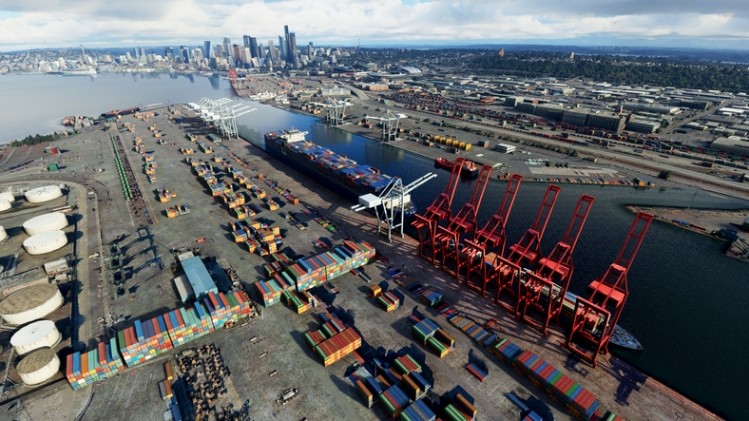US: Feed sector welcomes US House passing of bill to ease supply chain crisis, shipping group opposed

The supply chain congestion is resulting from the confluence of record US consumer and business import demand, coupled with disruptions resulting from the COVID-19 pandemic.
The US House of Representatives passed the bill by 364 votes to 60 yesterday (December 8).
Leah Wilkinson, AFIA’s vice president of public policy and education, welcome the move and urged the US Senate to act accordingly
“Over the past year, the ongoing COVID-19-exacerbated supply chain issues have created logjams at US ports and blocked the export of our members’ products, resulting in steep financial losses and irreversible friction with international customers.”
The bill, which expands the power of the US Federal Maritime Commission (FMC), imposes minimum service standards on carriers and prohibits carriers from imposing “unreasonable” demurrage and detention fees, among other elements.
It requires shipping companies to adhere to “minimum service standards that meet the public interest” and blocks them from unreasonably declining cargo.
“This legislation works to address unfair shipping practices by tackling the worst instances of abuse from bad actors in the shipping industry in an effort to boost our country’s global competitiveness,” said Democrat representative Kurt Schrader.
Container industry pushing back against reforms
Other industry groups are backing the bill but the World Shipping Council (WSC), whose members represent 90% of the world’s container ship capacity, is critical of the legislation.
Following the US House passage of the bill, John Butler, president and CEO of the WSC, said:
“The House today passed HR 4996 without proper debate or committee process. The bill is a political statement of frustration with supply chain challenges – frustrations that ocean carriers share
“The problem is that the bill is not designed to fix the end-to-end supply chain congestion that the world is experiencing, and it will not and cannot fix that congestion.”
The ocean carrier sector is getting mixed messages from the Biden administration on solving the supply chain crisis, he said.
Butler told a US Senate hearing: “On the one hand, the administration is pressing us to get our customers to come to the ports and pick up their cargo so that we can get it out of the way and move additional cargo,” he said. “At the same time, we have a House bill, and an expected Senate bill, that would restrict the ability to use detention and demurrage incentives to get that job done.”
“As another example of mixed messages, we are also being told that we must put empty containers on outbound ships in order to clear the ports. Again, at the same time the proposed legislation in both chambers would say that we have to load all export boxes before we can load empties.”
And the bill ignores the fact that all supply chain participants are working collaboratively to find solutions to today’s problems, noted the WSC in October.
“Supply chain participants including ports, carriers, labor, marine terminal operators, rail, truckers, chassis providers and shippers are collaboratively working to find operational solutions to increase efficiency and cargo velocity.
“These operational solutions have born some success.”
Record levels of US ag exports
Notwithstanding the ongoing congestion, US import cargo is moving at historic levels, noted the WSC, and US government statistics indicate that agricultural exports are moving at or near pre-pandemic, and in some cases, record levels.
Containerized export tonnage of US soybeans increased almost 25% in the October 2020-March 2021 period, reaching the highest levels ever, according to the Foreign Trade Division of the US Census Bureau.
The US Department of Agriculture (USDA), noted the WSC, put US agricultural exports for fiscal year 2021 at US$173.5bn. The most recent USDA forecast for 2022, continues this upward trend, with those exports projected at US$175.5bn, down $2bn from its August forecast, but still a record if realized.











